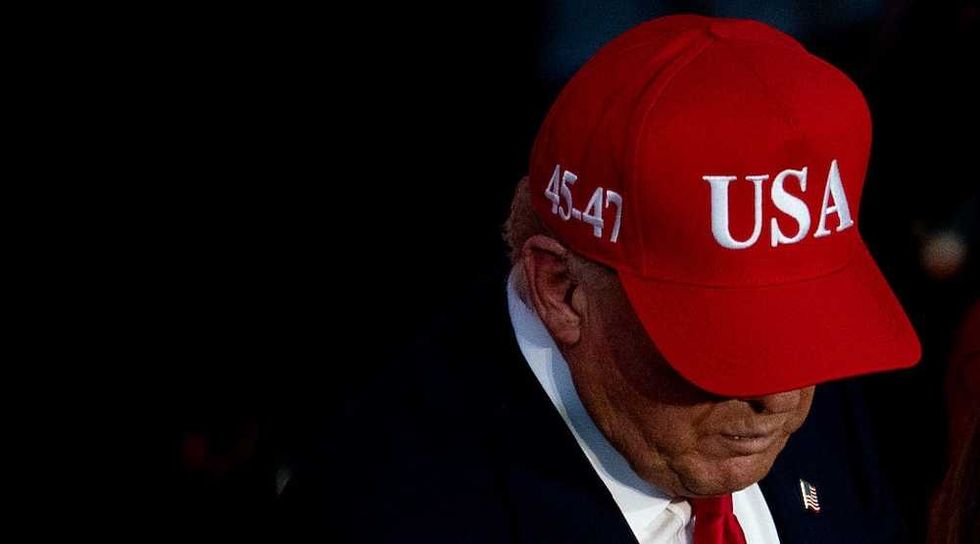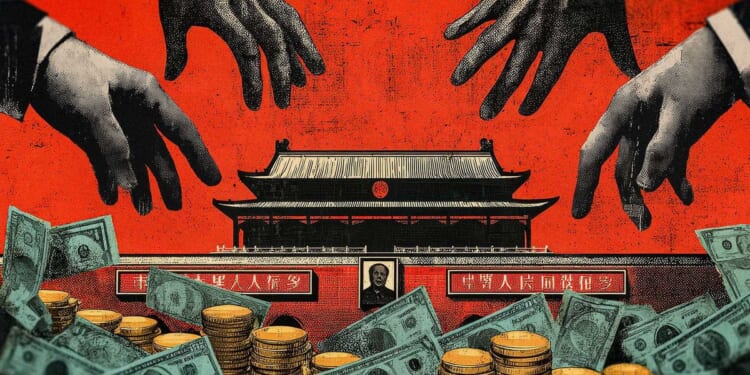In a recent interview, President Trump defended his earlier claim that bringing 600,000 Chinese college students into the United States would be good for the country. When the interviewer questioned how that aligned with an America First agenda, Trump replied that without those students, “Half the colleges in America would go out of business.”
To most Trump supporters, that sounds like a win-win — fewer foreign students and fewer left-wing universities to subsidize. But Trump seemed to view the issue as a business transaction: Closing locations is bad, losing revenue is bad, and the substance of those “economic units” doesn’t really matter.
Why should we play Russian roulette with our national security to pad universities’ bottom lines?
His comments revealed a deeper confusion about what America First really means.
The China contradiction
America’s relationship with China has long been incoherent. Every Republican politician insists China is our chief geopolitical rival — a totalitarian power bent on unseating the United States as global hegemon. Yet few make any effort to restrict Chinese immigration, investment, or influence. At some point, it becomes difficult to take any of the rhetoric seriously.
The problem is obvious: China has too many people and too much money. The country’s strength lies in what America abandoned: manufacturing. While American corporations chased financial gimmicks and “service economies,” China focused on making tangible goods at scale. That discipline built a vast middle class and positioned Beijing at the center of global production. Now nearly every Western industry — film, retail, education — depends on access to China’s markets.
The result: American institutions bend over backward to please a government they claim to fear. Chinese nationals can buy land, start companies, and enroll by the hundreds of thousands in U.S. universities. It would be funny if it weren’t so corrupt.
The university addiction
Trump knows mass immigration hurts Americans, but he struggles to say no when big money is involved. Foreign students pour billions into universities, and administrators have built their entire business models around them. But counting up dollars isn’t the same as serving the national interest.
Universities are publicly subsidized and supposedly dedicated to educating Americans first and foremost. Instead, they’ve turned into pipelines credentialing foreign elites — and sometimes, spies. Every seat filled by a Chinese student is one less for an American, and every dollar that props up a hostile regime’s protégés deepens our dependence on that regime.
The Department of Justice has charged three Chinese nationals at the University of Michigan for smuggling research materials and stealing technology. Eric Weinstein has even suggested that theoretical physics is being throttled for fear of espionage. Yet the universities — and now, apparently, Trump — seem unfazed.
Why save the enemy’s seminary?
Propping up higher education with Chinese cash isn’t just shortsighted — it’s insane. Colleges and universities have become leftist seminaries, charging astronomical tuition for courses that teach Americans to despise their parents and their nation. They already receive lavish government subsidies and still demand more.
Trump’s claim that “half the colleges” would collapse without Chinese money is dubious, but if it were true, those institutions deserve to fail. Let them. Destroying the patronage networks that produce radical activists was once a Trumpian goal. Reviving them with foreign money would be an act of political masochism. Why should we play Russian roulette with our national security to pad their bottom line?
RELATED: The ‘China class’ sold out America. Now Trump is calling out the sellouts.

The broader threat
Chinese money poisons more than academia. Nationals and shell companies routinely buy American land — including, alarmingly, property near military bases. One recent purchase of an RV park in Missouri by a Chinese couple just happened to place them next to Whiteman Air Force Base, home of the B-2 stealth bomber fleet. Similar shadowy transactions dot the map.
The pandemic exposed the madness of this dependence. The same regime that unleashed a virus on the world also controlled the supply chains for the medicine and protective gear we needed to fight it. Yet America’s political class still refuses to sever the tie. They are too addicted to Chinese money — and too invested in pretending that dependency equals diplomacy.
If the GOP is serious about confronting China, it must start by cutting every cord of reliance. Banning Chinese students from U.S. universities would be a simple, symbolic first step — and it would strike directly at the heart of the progressive academic machine.

















